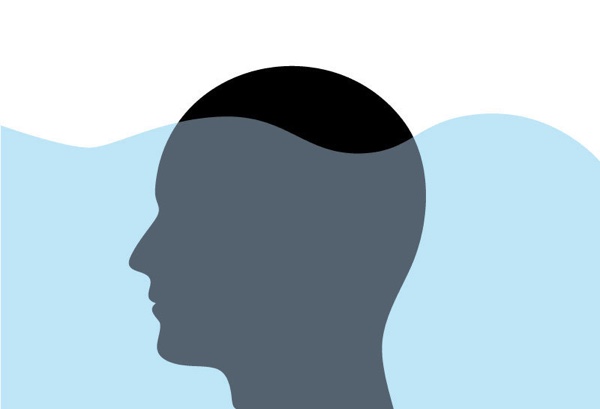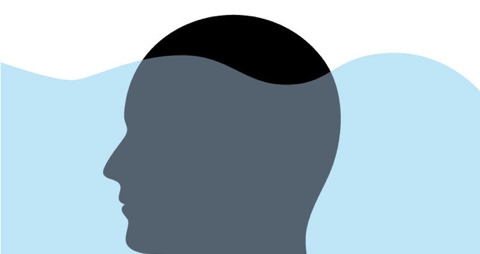I thought I did, but I read something that made me realize I don't know the truth about customer loyalty. Or I don't have a mindful understanding of it, even though my subconscious does (and yours does, too). Which is funny, because the truth about customer loyalty has a lot to do with the subconscious.

Let me explain.
The "something" I read is an article by A.G. Lafley and Roger L. Martin called Customer Loyalty Is Overrated. The following excerpt is the culprit of my aha! moment on the truth about customer loyalty:
Research into the workings of the human brain suggests that the mind loves automaticity more than just about anything else—certainly more than engaging in conscious consideration. Given a choice, it would like to do the same things over and over again.
Now that I've read it, automaticity explains the things many of us do as creatures of habit. Following the same routine in the morning. Sticking to a singular meal at a favorite restaurant. Doing anything we don't enjoy because it's easier than figuring out an alternative.
It's even more obvious when you apply it to consumerism and marketing. During my recent viewing of Man Men, it was surprising to find out how many brands from the 60s and 70s are still around.
Yet it makes sense. What do Clearasil, Right Guard, Vicks and Heineken all have in common? Even though many of us weren't around when these products emerged, we know what they do and where to buy them.
Heineken, in all its green-bottled glory, has been quenching thirst for over 140 years. For many beer drinkers, buying a case of Heineken is more than automatic, it's ritual.
If Right Guard has been helping athletes keep odor and sweat at bay since the 1960s, why buy anything else?
And Clearasil skincare products have been ridding teens of acne for 60 years. What's the argument for not using Clearasil?
These brands and their products were go-to purchases for generations before us. Contrary to what most marketers believe, people still buy these products because it’s simple, and they don’t have a reason not to. Given their lasting popularity, the cycle of automaticity definitely remains unbroken.
But Wait, Does The Message Still Matter?
Sure, of course the message matters. I’m a marketer, so I’m not discrediting the importance of a solid value proposition and the perfect marketing message. These are still the components of a company’s launching pad for its new product or service.
But a better question is: does the message fuel customer loyalty? As Lafley and Martin point out, as long as a product meets customer expectations, the answer is no.
Think about it: when you go to the store to buy toothpaste, do stop in the toothpaste aisle for five minutes and consider what to buy? Or do you grab the Colgate (or whichever brand you usually use)?
Colgate is prominently displayed and easy to access. It’s in small drug stores, big grocery store and even gas stations. If Colgate has cleaned your teeth for years, chances are your subconscious wants to automatically grab the Colgate and move on.
While all this is happening, what looks like customer loyalty is actually the human brain doing the easiest thing possible. Once a brand gets you on their track, they should be able to keep you there.
A Conscious Unpacking of the Subconscious
While writing this post, I realized a friend’s recent experience supports the notion that customer loyalty is about not rocking customers off the boat.
Those on the east coast are familiar with Winter Storm Stella, which dumped bunches of snow on the Northeast in mid-March. My friend needed to travel to Florida from Niagara Falls on March 15. He booked a return flight on Spirit Airlines about a week before the storm became national news.
A few days later, Spirit issued a “Travel Advisory” and he received this message:
A Travel Advisory has been posted for your flight(s). If you wish to cancel or modify your reservation, you will not be charged a change fee or fare difference if:
- You book the same departure and arrival airports
- Your flight is rebooked within selected dates (choose 'Change reservation' to view dates with the same price)
Good to know, he thought, especially since he really needed to get to Florida on the 15th. He figured he’d be able to cancel the flight with no penalty if Spirit wasn’t able to get him where he needed to go. Like him, I believe that was a reasonable assumption.
But boy was he wrong.
The day before his flight – when the storm was raging and the Buffalo area had a foot of snow – the majority of flights from area airports got cancelled. Since the forecast also showed snow all day Wednesday, my friend thought his Spirit flight would get cancelled. He decided to look at flights out of Toronto, where the weather was less severe.
Upon calling Spirit Airlines to cancel his flight, they informed him he could not cancel his flight without incurring costs that were more than the cost of the flight.
The reason?
Spirit had not yet cancelled the flight, so there was still a possibility it would depart on time. He had no choice but to hope the storm turned.
At 4pm on Tuesday, it was still snowing in Niagara. Snowing hard. But that didn’t matter, according to Spirit. We still might fly!
To wrap up the story, Spirit cancelled my friend’s flight at 7:30am Wednesday morning, three hours before scheduled departure. He frantically found a seat on a flight out of Toronto and made it to Florida, but only after two days of stress and anxiety. He also paid double the price for the new flight on Wednesday morning than he would’ve paid if he cancelled the Spirit flight and rebooked Tuesday afternoon.
Needless to say, Spirit’s marketing did a good job reeling in my friend, but they failed at delivering a smooth and steady experience. The only thing automatic about the next time my friend or I book a flight is that it won’t be with Spirit Airlines.
Conclusion
The truth about customer loyalty is that it’s rarely about loyalty. The term might qualify as a misnomer given they way it’s used and understood.
Rather than customers making conscious choices to remain “loyal” to a brand or a business, their subconsciouses make decisions for them. They aren’t complex decisions either, they’re simple ones based on accessibility and history with a product.
Think about your experiences with products and services. How often are you truly loyal to a product because of the brand behind it?
Is it more accurate to say you buy a product because it does what it’s supposed to do, is affordable and you know where it get it?
For me, that's often the case.
In fact, the only time a conscious decision takes place is when it’s to deliberately not remain loyal, as in the example of my friend and Spirit Airlines.
I’m legitimately loyal to a couple of mom and pop restaurants run by some good people, but when it comes to products and big brands?
I’m on board with turning off my mind and letting my subconscious be my guide.
Editor’s Note: if you like this post, keep an eye out for a second blog on this topic in which we’ll discuss how the truth about customer loyalty impacts digital strategies.






